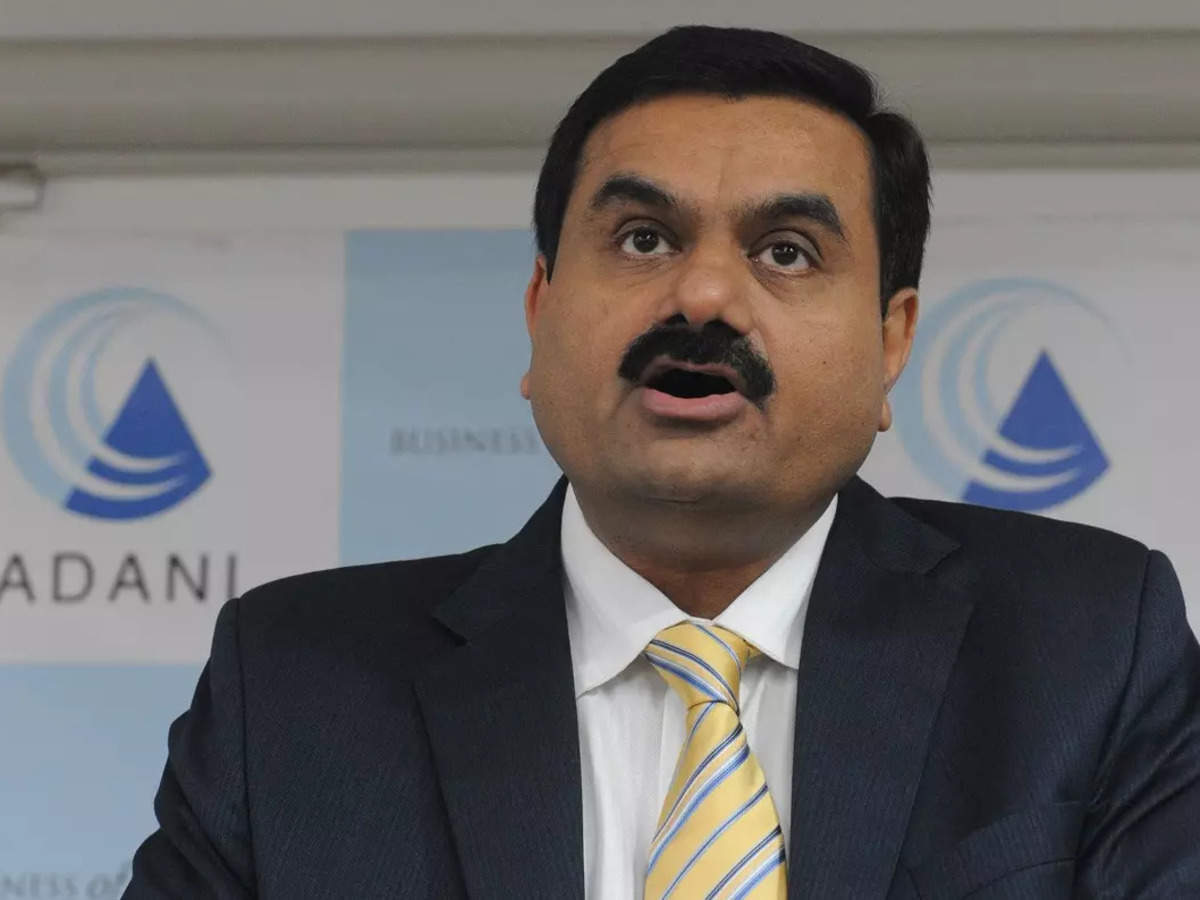Adani Group CFO: Founders are not engaged in speculative activities.

In two trading days, the market value of the Adani Group stocks lost $51 billion (4.2 lakh crore) because of the reveal of the Hindenburg Research study last week and a short-selling campaign. In an interview, Adani Group CFO Jugeshinder Singh claims that the timing of the study was questionable and that it is designed to sabotage Adani Enterprises Limited’s (AEL) 20,000 crore FPO (follow-on public offer), which expires on January 31.
The allegations against the Adani group in the report.
Almost all of the concerns mentioned by the study are related to disclosures that Adani firms made over the past decade. For example, the study said that AEL transferred the rail assets for the Carmichael project to the promoter’s private business, which wrote off their value, suggesting that AEL exaggerated income.
However, following the counsel of the appropriate auditor, the family firm merely replicated the accounting that AEL had recorded write-offs in its books. This is a calculated shot to deceive, CFO said, indicating not ignorance or a mistake. Singh discussed the massive pinch and the reasons behind his confidence that the Adani story is concrete.
He said that the attempt to deceive was intentional rather than the result of ignorance or error. Singh discussed the pressure and the reasons for his confidence in the veracity of the Adani story.

Based on the company’s intelligence, how big should the short bet be?
The business has not completely been able to determine what instruments the reports have analyzed, according to the CFO, because of the market delays. The size of the short is another unknown to the corporation.
Did the business know about the change in plans?
The corporation saw the impact and evaluated it, but in a thinly traded stock, with frequent short positions, they have been most worried about the loss of value for the minority shareholders. Beyond that, the company does not have a system in place to keep track of every single exchange. One of the lessons from this is just that. Their management has not placed a lot of emphasis on trading on equity. Instead of market trading, the company has always placed more emphasis on cash flow, performance, earnings, and other business performance parameters.
Who is responsible for this short trade?
The business said they don’t want to speculate on who could be responsible. They have never considered it, and as a parallel thought, they believe that other corporations do the same. But if someone is responsible, the truth will ultimately surface, and if the business becomes aware of it, they will take strict action. However, they share a report like this with the pertinent parties who then short the stock before dropping it—in their instance, the report of falsehoods and deceit. But the information comes through a bit slowly.

Suspecting corporate shadowboxing, did the group?
Don’t conjecture, please. According to the corporation, they do not engage in such actions, thus they believe that other members of the Indian corporate sector would act in a justified manner.
Who, in the early days, has been selling Adani Group stocks, based on the company’s understanding?
The Adani group believes that they are not sellers. Institutional, long-term, strategic, cross-generational, and long-term investors are not selling either. Therefore, if it is sold in small increments over time to cover shorts, the data has a lag, is challenging to understand, and is opaque. The group won’t be aware of everything right away since they don’t have everything at the moment.
If the stock doesn’t recover on Monday, what will the company’s plan of action be? Offer a discount and extend the FPO’s hours. Could they possibly call it off?
The corporation has made it quite obvious that the FPO is ruling the market as per plan. The view of long-term strategic investors remains unaffected because they are unconcerned about short-term market volatility. For seasoned, cross-generational, strategic investors, price is irrelevant. Although an FPO gives the chance to cover the umbrellas of strategic long-term investors, super HNIs, and family offices, the same does impair retail participation. Based on business discussions and contacts with them, they support us. There is a backorder for the anchor book. Therefore, it appears that the corporation is optimistic that the corporate and strategic investors will fill the vacuum left by the retail market and that the FPO will be a success.

Has the decline in stock prices alarmed anchor investors? What is the business deliver to them? Is AEL’s value declining?
There has been no change to the business; this is market volatility. The business is a platform for utilities and infrastructure. Because of the stock’s increased volatility, AEL‘s core businesses—infrastructure, transportation, and energy—have not changed. The infrastructure and utility platforms of AEL, which continue to operate as earlier, and are expected to operate the same tomorrow, are where the company’s value and story are found.
There is no shift in the value of AEL, which is into hatching businesses and investments and that is what the key potency of Adani Enterprises is. Airports are good in business, the data center firm is doing well, green, renewable power projects are running optimally, roads are shaping up well, the services company is still here, and digital platforms are operating efficiently.
If the FPO fails, is there a backup plan?
The corporation does not rely on the whole capital program that it raises money to cover costs or for business operations. They are quite detailed. Adani Enterprises, its subsidiaries, and all of its portfolio firms are always adequately financed. It simply depends on whether they expand at a rate of 20%, 40%, 10%, or 5%. That being the case, this attack will ultimately fail. Because they erroneously believed it to be a tech firm that must generate revenue to cover its costs. The company is taking these three actions to increase the number of shareholders, diversify the research firms that are covering our stock, and raise growth equity capital if necessary.
Regarding this entire incident, have you contacted the Securities and Exchange Board of India (SEBI)?
Fundamentally speaking, neither our group nor its founders engage in any form of speculative activity. Our primary attention is still on the assets we develop and how to manage them as effectively as possible. That has been our strength, and regulators won’t get it. We will present our results after we have a complete understanding of everything and if we discover anything that we feel requires disclosure to the regulators. However, it will take some time, and this is a severe issue. Any severe issue of this type needs to be thoroughly evaluated and assessed, which takes time and effort.

The last call.
According to the investigation, the Adani group exaggerated income because it gave the promoter’s private business ownership of the train assets for the Carmichael project, which quickly wrote off their worth. However, the family company reproduced the accounting that AEL had fully documented the write-off in its books, according to the advice of the relevant auditor. “This is not ignorance or an error, but a determined attempt to deceive,” the CFO declared.
edited and proofread by nikita sharma




